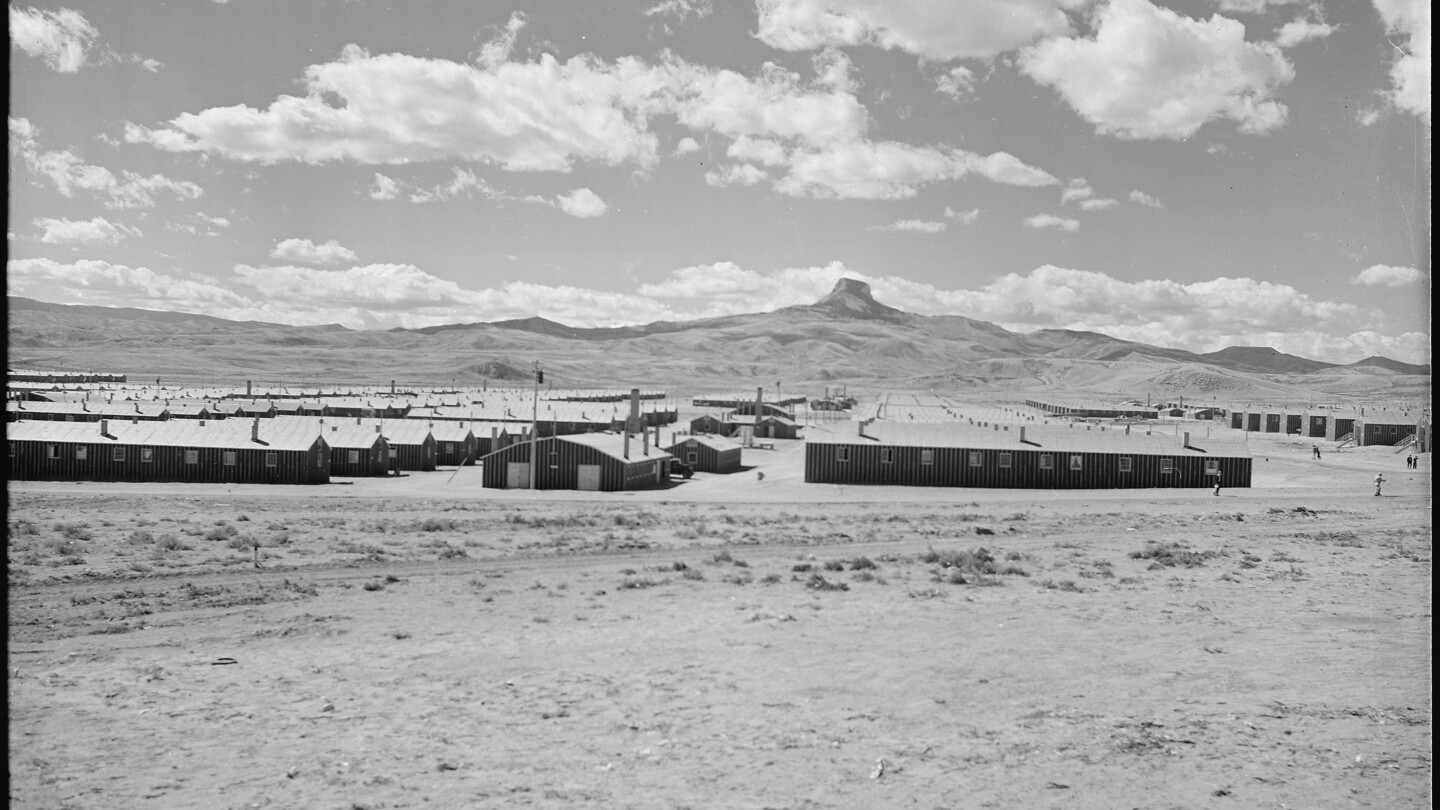How Prop 84 Helped the Homeless and Added Affordable Housing

Posted every Monday (see archives), the Laws That Shaped L.A. spotlights regulations that have played a significant role in the development of contemporary Los Angeles. These laws - as nominated by a variety of experts we've been polling - are considered to have been either beneficial to the city or malevolent. The laws may be civil or criminal, and they may have been put into practice by city, county, state, federal or even international authority.
This Week's Law That Shaped L.A.
Law: Housing and Homeless Bond Act of 1988 (Proposition 84)
Year: 1988
Jurisdiction: California
Nominated by: David A. Roberti
During much of his 27-year-run as a state legislator, David A. Roberti was among the most powerful politicians in California.
The Los Angeles resident joined the State Assembly in 1966, when he was 26-years-old. From 1980-1994, Roberti served as President pro Tempore of the State Senate, a position that placed him third in the gubernatorial line of succession, following only the lieutenant governor.
Back when the Laws That Shaped L.A. was getting started late last year, Roberti welcomed a visitor to his post-political career legal office, located in Koreatown.
There, during a wide-ranging conversation, Roberti discussed some of the general issues as well as specific bills, bonds and propositions that he considers to be among his policy career's most significant.
That long and diverse list includes the likes of: gun control, urban parks, humane treatment of animals, a survey of uncapped underground wells, seed money for the Simon Wiesenthal Center's Museum of Tolerance, and the creation of the state's Information Practices Act, which is California's version of the federal government's Privacy Act. (Upcoming Laws That Shaped L.A. will delve deeper into some of the above.)
But among all the bills that Roberti sponsored or co-sponsored throughout his political career, and of all the bills he shepherded into law via his longtime leadership role, was there a single piece of legislation - or a single issue that made its way into various legislation - that Roberti is most proud of?
The man who represented areas from Alhambra to Northridge to Hollywood and the Fairfax District, pauses to consider. Then he answers: his work on housing issues.
"You have to provide for housing for every strata of people who are going to be living in your community," Roberti says, by way of explaining his view of a balanced neighborhood. "Otherwise, you won't have a community."
Roberti says his housing efforts are exemplified by the Housing and Homeless Bond Act of 1988. Roberti co-authored the Act and then campaigned successfully for its voter-approved passage as "Proposition 84."
(Roberti's Prop 84 co-author was Tom Hayden. View the KCET Departures: Venice video interviews with Hayden here.)
Prop 84 mandated the sale of bonds to raise $300 million (in 1988 dollars) to fund both the creation and restoration of emergency homeless shelters, and to create new, affordable low-income housing.
More specifically, Prop 84 pledged to pay for 8,000 new rental units, 22,000 rehabilitated residential hotel rooms, 4,000 new home purchases by first-time buyers, 900 family housing units, 300 seasonal worker housing units and 33,000 new emergency shelter beds.
A Los Angeles Times article from a year after the proposition's passage catalogs some of the resulting grants: $2 million to homeless shelters in Los Angeles County to go for 800 new shelter beds; $200,000 grant for 40 mobile homes for the homeless; $216,000 grant to a West Hollywood homeless clinic; $250,000 each to a trio of other Los Angeles shelters.
Certainly, Roberti's initiative didn't solve the problem of homelessness. (See this previous Laws That Shaped L.A. column.)
But as the Loyola Marymount University graduate** looks back at his time in public service -- he was termed out of the legislature in 1994 -- he takes pride in what he was able to accomplish in the housing realm, including making units available for AIDS patients and staving off housing changes later to come.
"I helped a whole generation in Santa Monica and even in L.A.," Roberti says of keeping rent control for what he says was fifteen years longer than otherwise would have occurred. (Laws were repealed after he left office.)
Roberti also saw through the 1979 Rental Construction Housing Program, which similarly to Prop 84 added and preserved low-income units. Indeed, throughout his career, Roberti pushed for housing public policy as a counterweight to the absolute free market.
"Governments have to perform certain public services," he says. "I don't believe in laissez faire government."
Roberti says, in some American cities, letting the market alone take care of determining who resides where works fine. "But in the majority of places," he says, "I don't think that's the case." He cites examples of senior citizens here in particular.
But perhaps all else, when it came to helping the homeless find shelter, Roberti was a particularly sympathetic legislator.
In a 1988 pro-Prop 84 brochure, Roberti was quoted explaining why he wanted Prop 84 to pass: "Kids and adults don't have to live on the dirt," Roberti says. "The public is way ahead of its government in demanding that we show some compassion for the people who just want a hand up, a little help, and not a hand-out."
And regarding his larger philosophy, in 1994, when running for Treasurer and fending off a pro-gun-lobby-funded recall effort, Roberti told the Times: "I guess I gravitate toward the have-nots, the people who need somebody to fight for them."
The legislator added: "I think we make an error if we patronize anybody who thinks they are always right because of their condition, rather than the justice of their cause."
**Jeremy Rosenberg has written about Roberti for LMU.
To suggest a "Law That Shaped L.A." or otherwise contact the columnist via: arrivalstory [at] gmail [dot] com, or leave a comment at the bottom of this page.


